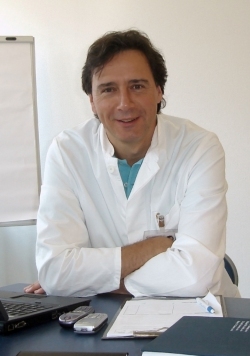Scientific and technological progress has allowed mankind to deepen its understanding of the link between nutrition and health status, and to identify a very important element in between: our genes. With the widespread prevalence of lifestyle diseases in the region, nutrigenetics, which studies the gene-based differences in response to the components of food or to nutritional complementation, has the potential to provide a basis for personalised dietary recommendations based on the individual’s genetic information in order to prevent diet-related diseases, to prevent or counteract obesity, to optimise weight control, and to retard aging.
Nutrigenetics, a hot topic at ICAAM Middle East in November
Dubai, UAE: Scientific and technological progress has allowed mankind to deepen its understanding of the link between nutrition and health status, and to identify a very important element in between: our genes. With the widespread prevalence of lifestyle diseases in the region, nutrigenetics, which studies the gene-based differences in response to the components of food or to nutritional complementation, has the potential to provide a basis for personalised dietary recommendations based on the individual’s genetic information in order to prevent diet-related diseases, to prevent or counteract obesity, to optimise weight control, and to retard aging.
“Nutrigenetic recommendations can benefit patients in many ways,” says Prof Dr Bernard Weber, CEO of Laboratoires Réunis Junglinster, Luxembourg. “Compliance to nutritional recommendations leads to a better overall feeling, which is due to an optimisation of the metabolism through an adapted nutrient supply. Particularly pertinent to this region, a better knowledge of oneself through nutrigenetic analysis and an observable amelioration of one’s health and wellbeing status durably encourages making lifestyle changes for better health.”
Prof. Dr. Weber will be speaking at the fourth International Congress in Aesthetic, Anti-Aging Medicine & Medical Spa (ICAAM Middle East), which takes place 25 – 26 November 2011 at the Habtoor Grand Resort & Spa in Dubai, UAE.
“The challenge for the Middle East is to provide a comprehensive service and interpretation of genetic data. Nutrigenetics may of course be applied to practices in the UAE and wider Middle East, including among others, general, esthetic, or nutritionist’s practices, but also specialised practices such as in endocrinology (e.g. diabetes), cardiology, gynecology, etc. Nutrigenetic information is also valuable for medical spas,” Prof. Dr. Weber explains.
According to Prof. Dr. Weber, an intimate play between genes and environment governs our appearance and wellbeing. “The knowledge, based on personal genetic and environmental data about how our unique organism functions, provides a huge advantage in anti-aging medicine and aesthetic considerations. In practice, preventive genetic testing for example may help cosmetic surgeons, dermatologists, nutritionists, and many other aesthetic professionals to enhance the results of aesthetic procedures,” he says.
Under the scientific supervision of WOSIAM (World Society of Interdisciplinary Anti-Aging Medicine), the largest scientific anti-aging society with more than 150 affiliated associations worldwide, Informa Exhibitions, the organisers of Arab Health, will host a very practical congress proposing an advanced program for advanced practitioners as well as aging solutions for a better global management of patients including genetics, detox, stress management, fat metabolism, and treatment for the aging people .
For more information on ICAAM Middle East, please call +971 4 407 2743 or visitwww.antiagingme.com.




